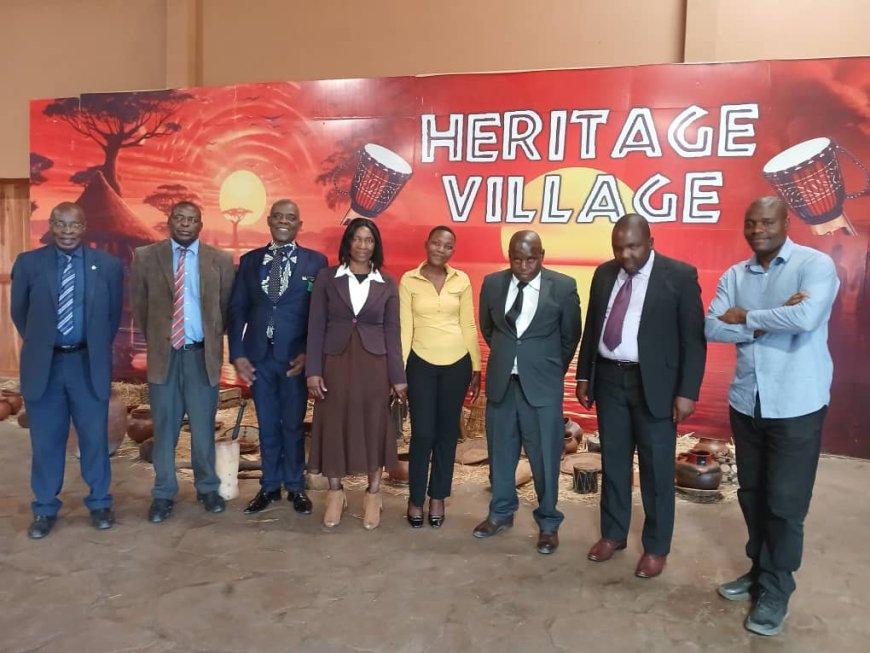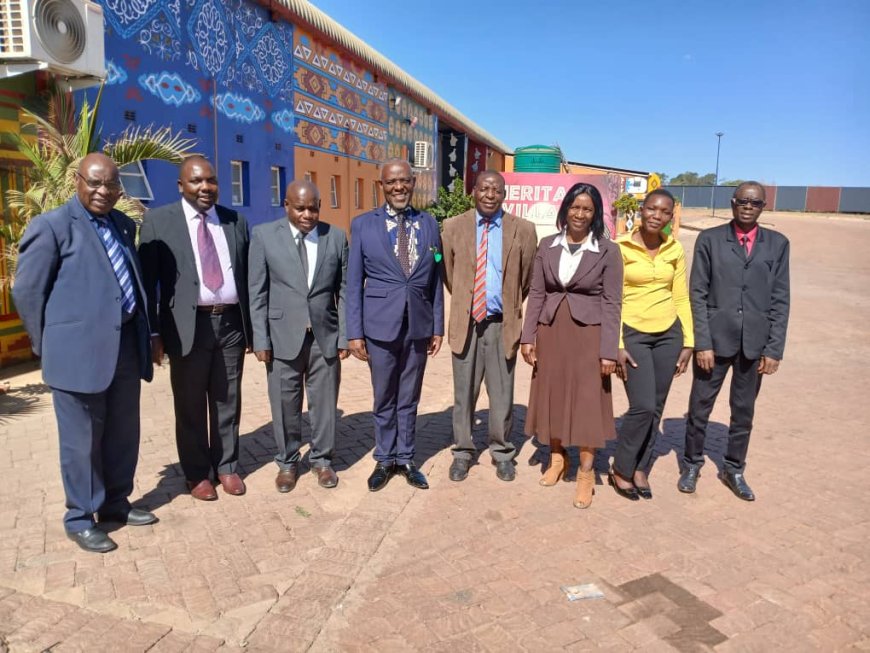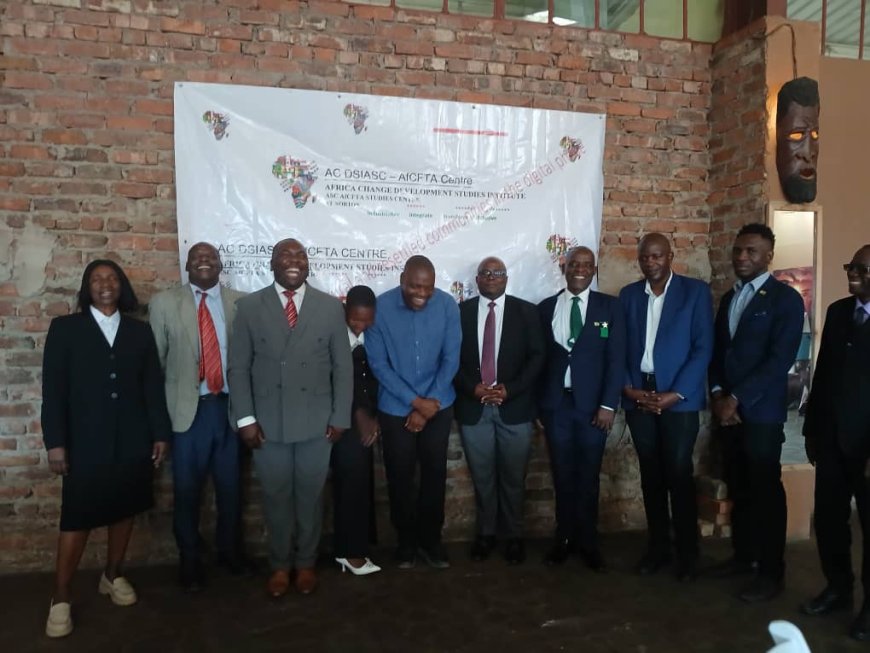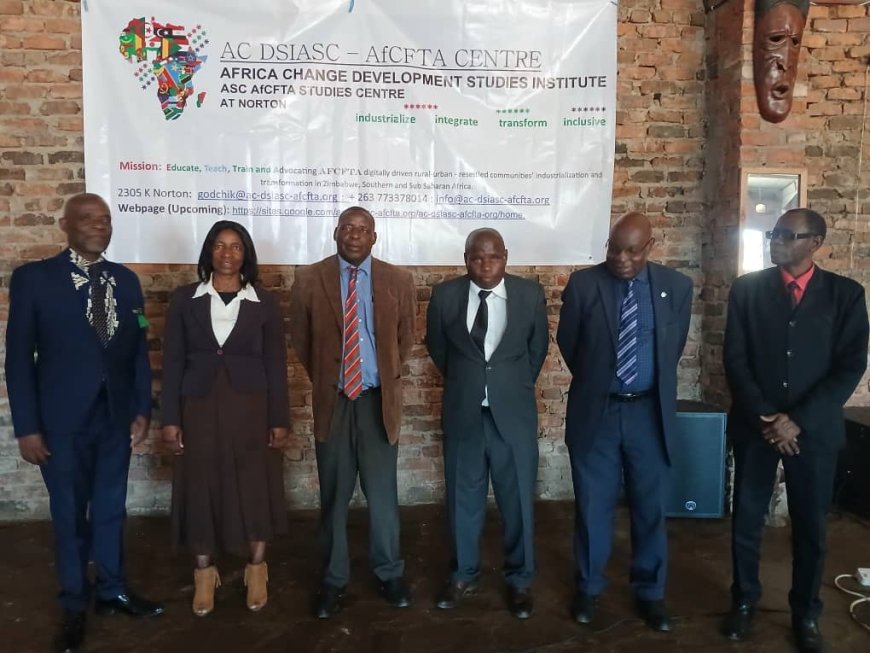Africa's Free Trade Dream at a Crossroads: Experts Debate Empowerment vs. Exploitation

Gweru, Zimbabwe – In a powerful call to redefine Africa's economic destiny, leaders, academics, and policymakers gathered in Gweru, the Midlands' capital this month, warning that the continent's landmark free trade agreement risks becoming a tool for foreign subjugation if not urgently anchored in "Afrocentric" principles.
The 2025 ASC AfCFTA International Conference, held at the symbolic Museum of African Liberation, served as a critical forum to debate the future of the African Continental Free Trade Area (AfCFTA). The prevailing sentiment was a mix of immense optimism for the world's largest free trade zone and stark apprehension about its potential pitfalls.

The central theme, articulated forcefully by the conference organizers, was that the AfCFTA must be a "Transformative" project—one focused on "legacy reclamation" and the industrialization of marginalized communities, rather than a simple tariff-slashing exercise that could leave local populations behind.
"Let the AfCFTA project be typically Afrocentric in terms of ownership of the means, empowerment, and employment of the African Citizen," declared Professor Godfrey Chikowore, the Founder-Director of the hosting Africa Change Development Studies Centre. He cautioned delegates against implementing a "non-Afrocentric AfCFTA whose outcome constituted an outright subjugation and intensification of marginalization and exploitation... by external development partners."
The conference championed the Shona principle of “Nyika Inovakwa Nevene Vayo”—a nation is built by its own citizens—as the guiding philosophy for the trade bloc's implementation across Sub-Saharan Africa. Professor Chikowore argued that the success of the AfCFTA should be measured not just by traditional metrics like GNI per capita, but by a new "Investment, Growth and Development Calculus" that prioritizes local ownership and empowerment.
From Theory to Transformation
The two-day hybrid event, which drew government officials, captains of industry, and scholars both in-person and online, moved beyond broad ideology to tackle the practical mechanics of building an inclusive trade area.

Dr. Reginald Gwisai, Pro Vice Chancellor of UNICAF University, delivered a keynote address stressing the pivotal role of higher education. He argued that Africa's universities must drive the AfCFTA's momentum by generating tailored skills and research aligned with local needs, ensuring that rural and resettled communities are not just passive recipients but active participants in the new economy.
This sentiment was echoed in a presentation by Dr. Rosemary Guvhu, who, along with her co-authors, proposed an "Ubuntu-Inspired Transformational Leadership (UITL) Framework." The framework calls for a leadership style rooted in the African philosophy of shared humanity and collective development to overcome systemic resistance to change and foster inclusive growth.
"Localized, Afrocentric education... is the essential, non-negotiable infrastructure for reversing the entrenched 'posture of socioeconomic servitude' and securing the economic destiny of Africa in the digital age," Dr. Guvhu stated.
Government Buy-In and On-the-Ground Realities
The presence of officials from several key Zimbabwean ministries signaled a degree of government alignment with the conference's vision. A representative for the Minister of Home Affairs and Cultural Heritage, Mr. M. Masaka, outlined how national security and the preservation of cultural heritage create a stable and predictable environment necessary for investment under the AfCFTA. Envoys for the Ministers of Energy and Provincial Affairs similarly highlighted their roles in providing the power and planning for industrial transformation.

However, the conference proceedings noted the conspicuous absence of many other invited ministries, raising a critical question posed by the organizers: "What becomes of the constituency these ministries represent and how enlightened or ill-advised do their discussions in the Boardrooms become without recent real-time perspectives on the Transformative AfCFTA?"
Discussions quickly drilled down to the micro-level, examining the real-world interface between policy and people. Researchers from Chinhoyi University of Technology presented a study on the challenges of "Embedding Decent Work in Small Business Environments" in towns like Karoi. Their findings revealed that while national labor laws exist, most small enterprises operate informally, outside the effective reach of legal and social protections—a significant hurdle for the AfCFTA's promise of inclusive growth.
Similarly, a case study on Manicaland Province highlighted the vast, underutilized potential of eco-tourism. The presenters argued that with an AfCFTA-inspired policy roadmap, hubs like Nyanga and Chimanimani could become powerful engines for sustainable development, but currently suffer from fragmented policies and limited community engagement.
A Battle for Africa's Soul
Throughout the intensive sessions, the AfCFTA was framed not merely as an economic agreement but as the culmination of decades of Pan-African ambition, from the Lagos Plan of Action (1980) to the Abuja Treaty (1991) and Agenda 2063.
Retired Brigadier General Dr. J. M. Chinyanganya, a founding member of the Zimbabwe Defence University, linked the trade pact directly to continental security and the long-held dream of a "United States of Africa," arguing that economic integration is a prerequisite for consolidating sovereignty.
Innovative solutions were also put on the table for tackling deep-seated societal barriers. A presentation co-authored by Monica Madyembwa proposed leveraging machine learning and feminist theory to create data-driven interventions against Gender-Based Violence in higher education, identifying it as a structural impediment that undermines human capital and, by extension, the goals of the AfCFTA.
As the conference concluded, the message was unequivocal. For the delegates gathered in Harare, the successful implementation of the AfCFTA is more than a matter of trade logistics; it is a generational struggle to ensure that when Africa's economic renaissance finally arrives, it is the African people who are its primary architects and beneficiaries. The path forward, they contend, must be paved brick by brick with African hands.

 Francis
Francis 





